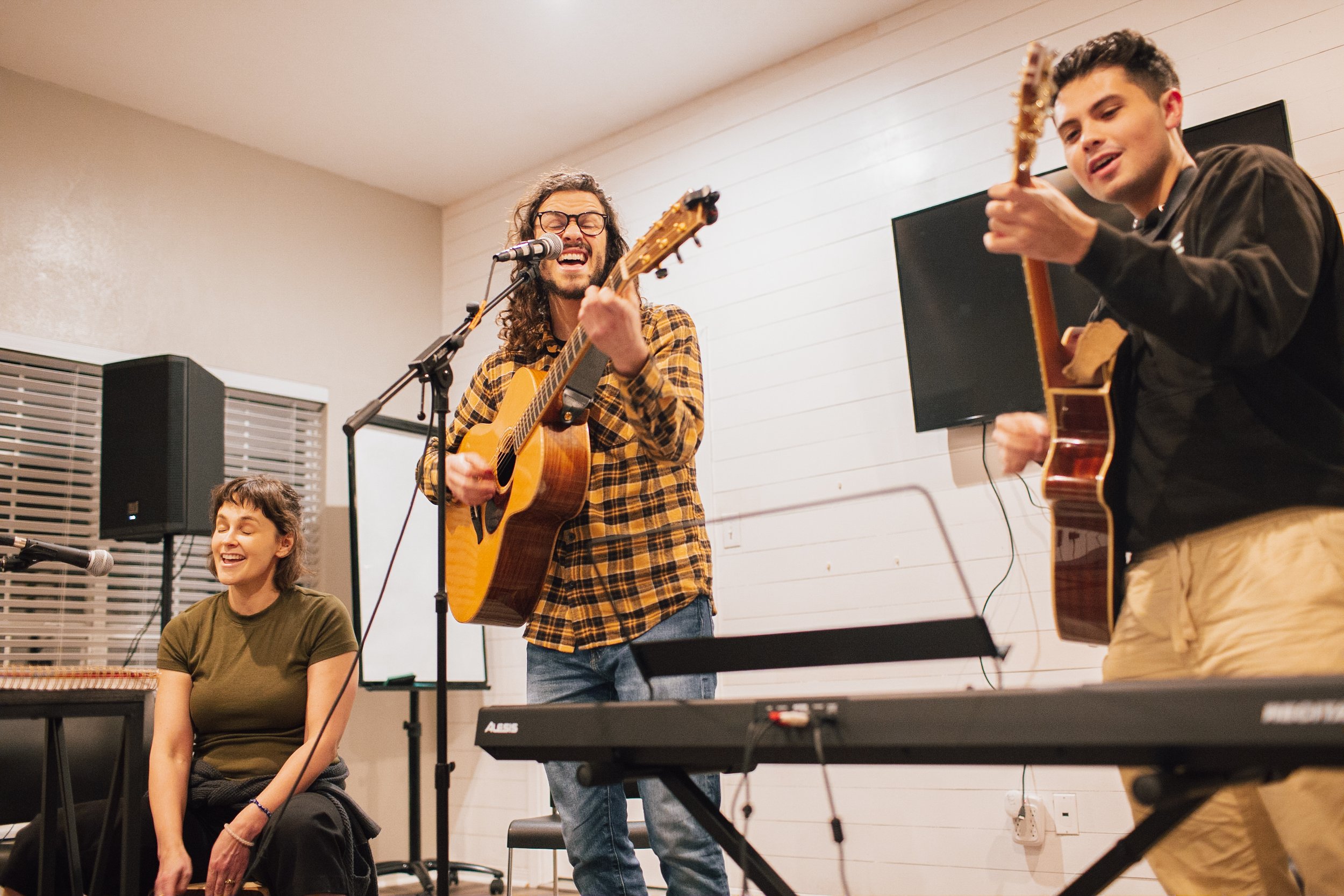5 Exercises When You’re Short On Time
One of the most common complaints from us songwriters is that there simply isn’t enough time to write. Like all worthwhile pursuits, the more we practice, the higher the skill, and the more fulfilling the act of doing it becomes. But getting to that point requires some level of dedication, and when creativity is involved, it can be difficult to know how much time to devote and how to use the time we have.
Songwriting is both art and design. Our creations have inspired minds but structured bodies. So when we have time on our hands to create, we can divide it between these two broad categories: inspiration, and organization. Though inspiration may seem like a tangle-haired, wild child next to organization, it, too, flourishes within parameters. The key is in committing to the parameters that result in progress - progress we won’t often see or feel until later down the road.
So what are the parameters that increase our skill and productivity as writers? Here are a few to add to your toolbox when you’re fighting against the clock.
Free-write daily for 5 minutes. If you’re tired of hearing it, it’s because it’s true. Daily stream-of-conscious writing gets the blood flowing, churning the muddy waters of creativity. As Ed Sheeran explains, the water runs brown until over time, it runs clear. I used to think this analogy was for other people, but my experience has since taught me wrong. Putting pen to paper, or fingers to keyboard, and writing with the senses of taste, touch, sight, sound, smell, and movement engaged, encourages more than the dribbling rants characteristic of my journal entries. Over time, we learn how these writings can be more than the seeds for songs, but contain much of the lyric and melodic rhythm to get songs underway.
Keep a title notebook. Devote 5 minutes a day to gathering titles and recording them in your title notebook. They could be words or phrases taken from articles or books, or collected while listening intently to a podcast. You don’t need to know what the song is about, but just be drawn to the word or phrase itself. The play here is to gather titles regularly and in such abundance that you begin to recognize those that call more strongly to be written into songs. Review the list on days you don’t feel much like writing, and take 5 minutes to imagine the concept that might arise for any title that peaks your interest.
Set four lines of lyric to music. Grab four lines of lyric that could become a song, perhaps lifted from your free-writing, and set them to melody and chords. Limit the time it takes to do this task to just 10 minutes. At the end of 10 minutes, lay down a quick recording and put it away for another day. The benefit here is that though you’ll feel like you’re just going through the motions instead of creating art, you’re also training yourself to make decisions quickly. As an added challenge, take another 5 minutes and write a quick 1-line refrain that repeats, forming a chorus section. Writing four lines of lyric that move immediately into a chorus is deceptively difficult, as our inclination can be to overcomplicate. Remind yourself it’s just an exercise, and practice putting your internal judge aside while you try new tools.
Choose 3 chords and manipulate their order and groove/feel. If 3 chords are good enough for Bill Withers, they’re good enough for me. Limiting the chord progression for an entire section, or song, to just three or four lets me focus on the rhythm and tempo with which I express those chords. For just 10 minutes, try a slow tempo, then try picking it up a bit, or try changing meter from 4/4 to 6/8. Change the order of the chords, or play the first chord for two measures instead of the just one. Notice all the choices you have within the first measure of a song, and be curious about how those choices emote, providing the landscape for the lyric to float above. Record the one you gravitate towards most, and listen to it on a different day.
Listen to songs with a critical ear. The most important action we can take to step into our own style is listening to the music of others. But instead of just letting the whole experience wash over you, do several “close listens,” listening for specific elements with each pass. On a more macro level, notice the form of the song. Listen for how the mood is established instrumentally, what chords and feel is essential for characterizing the sound. Listen to the melodic shapes and rhythms, even drawing them on paper to see how they change from one section to another. Listen for the title placement, repetition in the lyric, and how the mood of the music further emphasizes the message in the words. Take these larger realizations into your own writing, focusing on just one realization at a time.
We don’t have to feel like writing to be able to write. And indeed sometimes even when we feel radically inspired, it doesn’t guarantee that we’ll look back at what we’ve written later on and feel strongly about it. Inspiration can be a great propellant, but don’t mistake it for the long, slow burn that deep skills are made of. Commit to 10 minutes a day. Join a community for accountability, tell your friends, tell your loved ones that you’re just a happier human if you’re creating regularly. You’ll be glad you did.
If you’d like to be in a space where you can dedicate time for your writing, meet like-minded writers, and harness more songwriting tools, click here to learn more about my songwriting retreats.
Stay creative,
Andrea Stolpe


